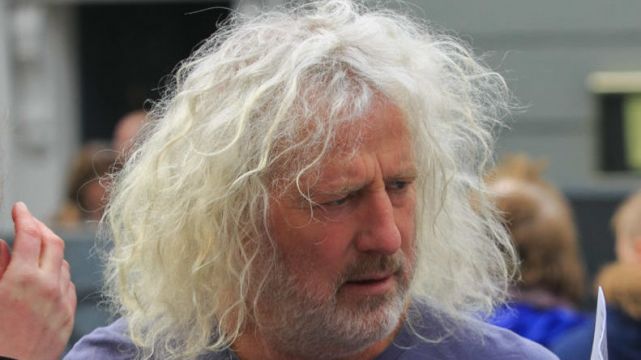Irish MEP Mick Wallace has accused most mainstream media in Europe of being under the control of the US during a debate in the European Parliament on draft EU legislation designed to stop abusive legal cases against journalists.
The Ireland South MEP used his address to criticise the US and Nato as the European Parliament backed rules to stop manifestly unfounded or abusive court proceedings against journalists and various types of activists.
MEPs voted strongly in favour of draft legislation to reinforce the protection of journalists, media organisations, human rights defenders, activists and artists within the EU from strategic lawsuits against public participation – otherwise known as SLAPPs – which are designed to intimidate and penalise them.
The proposed legislation was passed by 498 votes to 33 with 105 abstentions.
During the debate Mr Wallace highlighted the cases of a number of journalists who are in prison including Julian Assange.
He claimed the founder of Wikileaks was being kept in Belmarsh Prison in England since April 2019 while he awaits court rulings on attempts to extradite him to the US because he had told the truth “about US and Nato war crimes.”
However, Mr Wallace also used his speaking time to attack mainstream media in Europe which he claimed had been bought by “US empire.”
“Most of our journalists are being paid not to speak the truth. They have been bought,” Mr Wallace said.
He added: “Our media in Europe is in serious trouble. Independent media is almost non-existent today.”
The former Wexford TD said freedom of the press and of expression were the cornerstones of any healthy political system.
He said he agreed with comments of other MEPs that journalists were afraid to report the truth.
His Irish colleague and fellow member of the Left grouping in the European Parliament, Clare Daly, also raised the case of Julian Assange and other journalists being detained in prison.
All 13 MEPs from Ireland supported the new legislation.
The draft rules will apply in cross-border cases where the defendant, claimant and court are not based in the same country or when the act of public participation has relevance for more than one member state and can be accessed electronically.
They provide for the possibility of asking for the early dismissal of the lawsuit or else the claimant will have to prove that their case is not unfounded.
In addition, the claimant would have to cover the full costs of the proceedings including the defendant’s legal representation and face penalties, while the SLAPP victim could seek compensation, including for psychological or reputational harm.
To limit the practice of choosing a court likely to side with the claimant, defamation cases would only be admissible in the national court of the defendant.
MEPs also want EU member states to establish one-stop shops where SLAPP victims can seek information and advice and they have called on national governments to provide financial, legal and psychological assistance to such an initiative.
EU countries will also be required to ensure legal practitioners receive adequate training to deal with SLAPP cases.
The president of the European Parliament, Roberta Metsola, said it would always shield those seeking the truth and would uphold “the democratic right to know.”
“Journalism takes courage but journalists should not be forced to be brave to do it,” Ms Metsola said.
She added: “When frivolous lawsuits threaten lives and livelihoods, abusing our justice systems, we should legislate.”
The rapporteur on the draft legislation, Tiemo Wölken, said abusive lawsuits were dissuading critical voices from bringing issues of public interest to light.
The German MEP said journalists and activists were a cornerstone of our democracies and they should be able to work without being intimidated,”
“Our courts cannot be playgrounds for the rich and powerful,” Mr Wölken said.







